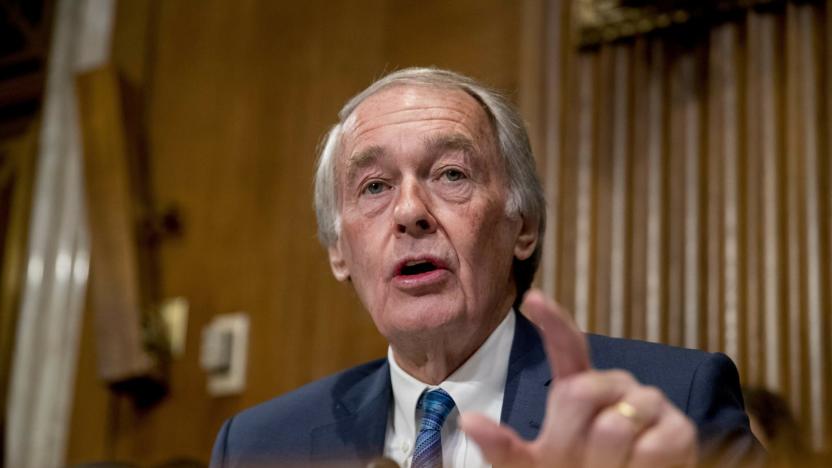markey
Latest

Senate bill proposes stricter privacy controls for children
Some politicians don't believe the Children's Online Privacy Protection Act does enough to protect kids in the modern era, and they're hoping to update it accordingly. Senators Ed Markey and Josh Hawley have introduced a bill that would amend COPPA with stricter controls on kids' data. It would ban ads targeted at kids, and would require an "Eraser Button" that would let kids and parents wipe data. The measure would still ban the collection of personal data for kids under 13 without their parents' consent, but it would also ban collecting data from the 13- to 15-year-old crowd without the user's permission.

Senators want FTC to investigate Google's location data collection
In December of 2017, the office of US Senator Richard Blumenthal sent Google's CEO a letter asking for a detailed explanation of the company's privacy practices around location services. Based on a report at Quartz, the senator's letter had 12 specific questions about how Google deals with location data. In January, Google responded to all of the issues in a lengthy letter signed by Google's VP of public policy, Susan Molinari. Now, apparently unsatisfied with the response, Senators Blumenthal and Edward J. Markey have sent a written request to the FTC to investigate Google's location services, along with "any deceptive acts and practices associated with the product."

Carriers face big surge in cellphone surveillance requests, raise a few alarm bells
Color us unsurprised that US law enforcers would push hard for surveillance access. Congressman Ed Markey has published a new report on requests to cellular carriers that shows a recent rush of demand for information, including last year. The rates vary sharply, but T-Mobile has seen a yearly hike of 12 to 16 percent, while Verizon has seen its own grown 15 percent -- and Sprint took nearly twice as many surveillance requests as AT&T or Verizon in 2011, despite its smaller size. Markey's concern is that police and other investigators are casting too wide a net and sweeping up innocent customers through widescale requests, potentially violating their privacy in the process. Whether or not cell tower dumps and other broad fishing attempts are problems, carriers have been quick to point out that they have huge teams in place to deal with police requests and cling steadfastly to requiring a warrant when the law demands it. Needless to say, there are a few groups that strongly disagree with that last claim.

Verizon says it will put location warning labels on all phones sold
See that rather ominous warning label above? That's a new sticker that will soon be placed directly on the screen of every new device Verizon Wireless sells. Contrary to what you might suspect, however, that's not being done in response to the most recent iPhone 4 tracking fiasco. The label was revealed in a letter to Representatives Ed Markey and Joe Barton, who themselves sent a letter to Verizon (and the three other major carriers) on March 29th inquiring about a New York Times story that raised concerns about how carriers collect and store personal location data. As for the other carriers' responses, they apparently aren't going as far as Verizon has with its warning label, but they do mostly echo Verizon's response in other respects. They all say, for instance, that personal data is secured by a variety of means and stored only as long as needed (which can apparently vary by carrier, though), that they don't rent or sell personal information, and that they request customer consent before accessing location data. Despite those assurances, however, Rep. Markey says he's still left with a "feeling of uneasiness and uncertainty," and he's pointing a finger at third-party developers in particular, who he says must be held "accountable."


